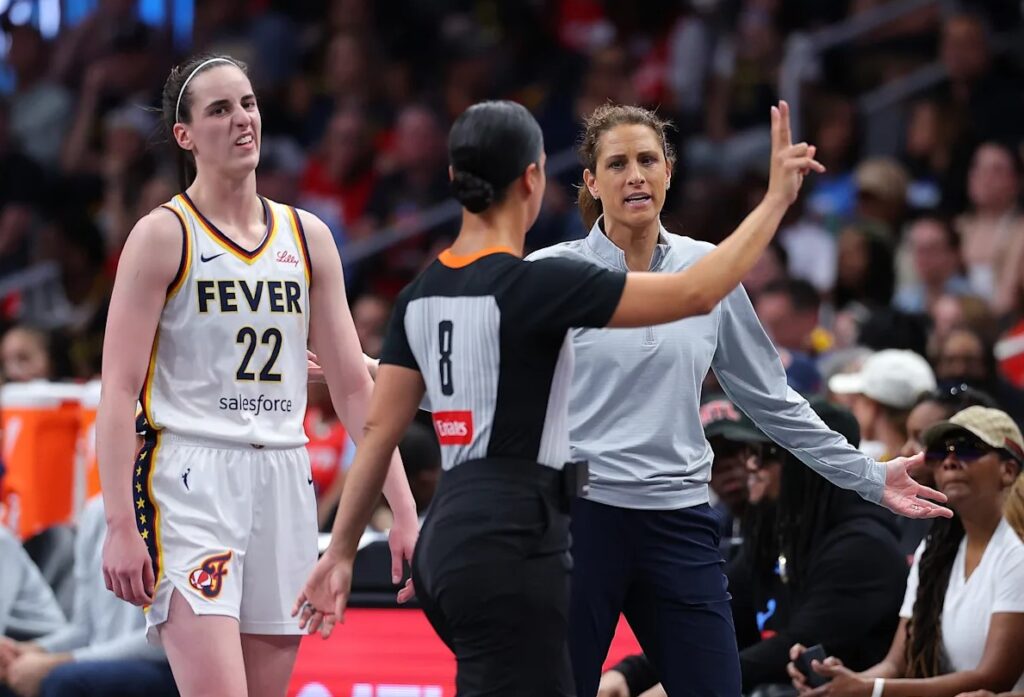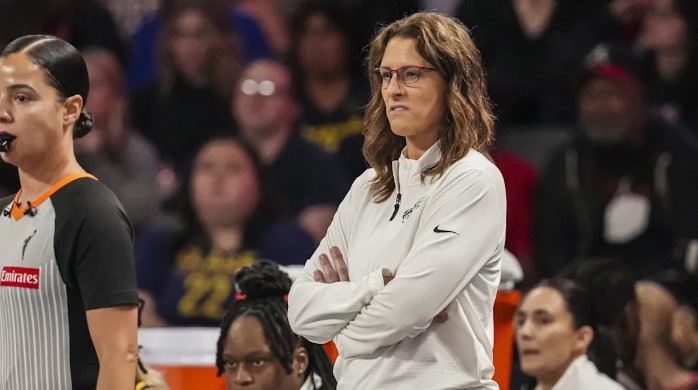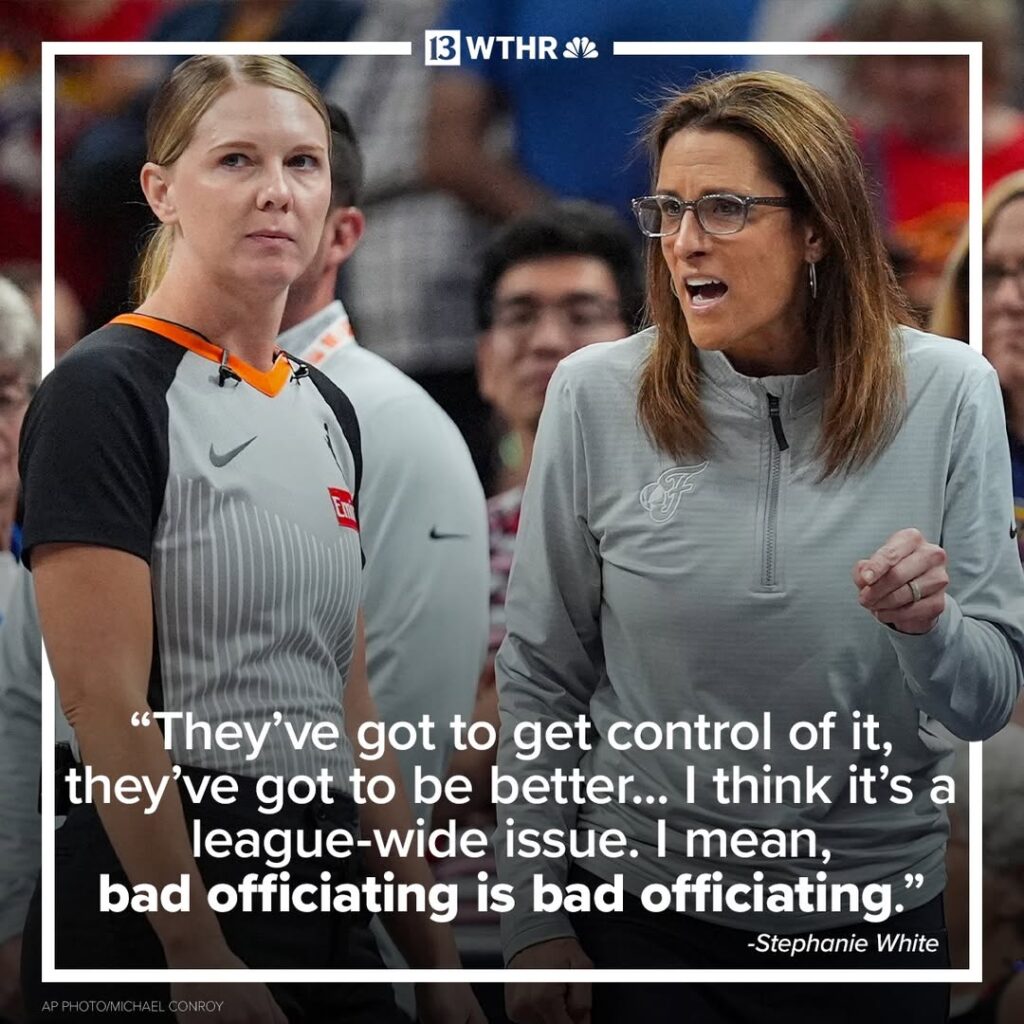The Breaking Point: When Veteran Voices Demand WNBA Officiating Reform
When a seasoned coach with decades of basketball experience reaches the point where diplomatic silence transforms into public criticism, the entire sporting world should pause and take notice of what underlying issues have finally surfaced. Stephanie White’s explosive post-game commentary following the heated matchup between the Indiana Fever and Connecticut Sun represents far more than a momentary frustration—it signals a growing crisis of confidence in WNBA officiating that threatens to undermine the league’s remarkable growth trajectory and competitive integrity.

The veteran coach’s declaration that “everyone is improving except the referees” cuts through the typical post-game pleasantries with surgical precision, addressing an elephant in the room that has been growing larger with each controversial call and missed violation throughout the season. This wasn’t merely an emotional outburst from a coach disappointed by a single game’s outcome; it was a calculated statement from someone who has witnessed the evolution of women’s professional basketball and recognizes when systemic problems require immediate attention and institutional change.
The timing of White’s comments couldn’t be more significant, coming after a game that featured multiple scuffles, questionable calls, and the kind of physical altercations that typically result from inconsistent officiating standards that leave players confused about what constitutes acceptable contact. When officials fail to establish clear boundaries early in games, frustration builds exponentially among players who are competing at the highest level of their sport, ultimately leading to the kind of heated exchanges that overshadow the athletic excellence that should be the primary focus of any professional basketball contest.
White’s professional credentials lend substantial weight to her critique, as she brings both playing experience at the highest levels of women’s basketball and coaching expertise that spans multiple decades, giving her a unique perspective on how officiating standards have evolved—or failed to evolve—alongside the increasing athleticism and skill level of today’s WNBA players. Her willingness to risk potential fines or disciplinary action by speaking publicly about officiating inadequacies demonstrates the depth of concern that exists within coaching circles about the current state of game management and rule enforcement consistency.

The broader implications of this public criticism extend far beyond a single coach’s frustration, touching on fundamental questions about the WNBA’s commitment to maintaining the highest professional standards across all aspects of game presentation, from player performance to officiating excellence that matches the league’s ambitious growth goals. As the WNBA continues to experience unprecedented popularity growth, television viewership increases, and expanded media coverage, the quality of officiating becomes increasingly scrutinized by fans, media, and stakeholders who expect professional-level consistency in all aspects of game management and rule enforcement.
The challenge facing WNBA leadership involves addressing legitimate concerns about officiating quality while maintaining the delicate balance between supporting their officials and acknowledging areas where improvement is necessary for the overall health and credibility of the league. This situation presents an opportunity for constructive dialogue about officiating standards, training protocols, and accountability measures that could ultimately strengthen the league’s reputation for fairness and competitive integrity rather than allowing festering problems to continue undermining confidence in game outcomes.
White’s comment about universal improvement except in officiating highlights a fundamental disconnect between the rapid evolution of player skills, coaching sophistication, and game strategy complexity versus what appears to be stagnant or declining standards in the one area that can most directly impact competitive fairness. The contrast becomes particularly stark when considering how much investment the league has made in player development, facilities, marketing, and broadcast production while seemingly neglecting the critical foundation of consistent, high-quality officiating that enables everything else to showcase properly.
The potential consequences of ignoring these concerns extend beyond individual game controversies to encompass broader questions about the league’s long-term credibility with fans, media partners, and sponsors who invest significant resources based on expectations of professional-level competition management. When veteran coaches feel compelled to risk professional relationships by speaking publicly about systemic problems, it indicates that private channels for addressing these concerns have proven inadequate, necessitating more dramatic measures to capture leadership attention and prompt meaningful reform initiatives.

Moving forward, the WNBA faces a crucial decision point about whether to treat White’s comments as an isolated incident requiring damage control or as a catalyst for comprehensive evaluation and improvement of officiating standards, training programs, and accountability measures that could strengthen the entire league’s competitive integrity. The league’s response to this moment of truth will likely determine whether similar public criticisms become more frequent as coaches and players lose confidence in internal reform processes, or whether meaningful changes restore faith in the system’s ability to self-correct and maintain the highest professional standards.
Ultimately, Stephanie White’s bold statement represents more than criticism—it’s a challenge to WNBA leadership to match the excellence demonstrated by players and coaches with equally high standards in officiating, ensuring that the league’s continued growth is built on the solid foundation of competitive fairness and professional integrity that fans deserve.